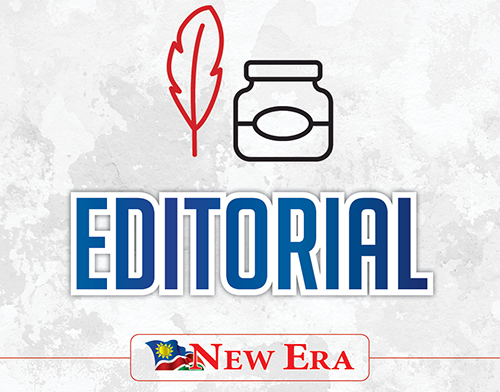The world, as we know, changed following Covid-19. Protocols were revised, laws were reconsidered and the old us were transformed to exist in the new normal.
One key lesson of Covid-19 was the realisation that there were essential service providers that our society could not do without. Our government classified a number of core businesses and allowed them to provide essential services during the height of the pandemic.
Healthcare professionals, journalists, even security guards, certain sole proprietors who provided essential goods and services, such as drivers, even small-scale farmers had to register to be classified as essential service providers to continue being operational during the lockdowns. The list goes on.
Now, as Namibia decides on 27 November 2024, the ECN is right to call for a review of who should cast the special vote as we witnessed on Wednesday. Currently the Electoral Act only identifies seamen and the uniformed forces as eligible for special vote. These, according to pre-Covid years, were the essential services.
There is an urgent need to review the current pre-Covid set up in our election approaches. Journalists, medical practitioners, security guards and many more are essential service providers who will be working on election day and may fail to cast their vote.
We would prescribe that anyone should be allowed to apply for permission to cast a special ballot if the person is physically infirm, disabled, pregnant or the person cannot vote at their registered polling station on election day — for any other valid reason — should be allowed to apply for a special vote.
Let’s use the special vote to encourage early voting.
That we had a 60% voter turn-out in the 2019 election was perhaps not properly analysed. Statistics would likely reveal a high number of essential service providers who, even though there is a public holiday, struggle to make it to the poling stations.
Opening up the special vote allows for more opportunities for more people to vote. This ensures that more people can have their voices heard. For us in the media, it creates room for election prediction by looking at early voting trends where experts can get a sense of voter turnout and predict what might happen on Election day. As it stands, out of the 10 000 that voted yesterday, attempting to predict the 27 November results would be futile.
Of course, we already witnessed how the special vote boosted excitement across social media, and some communities from Ngweze to Oluno. Increasing special voting can increase enthusiasm around elections.
So, the call is out there to the policy makers, let our future elections adopt the post-Covid norm. Grant special voting rights to essential service providers.



